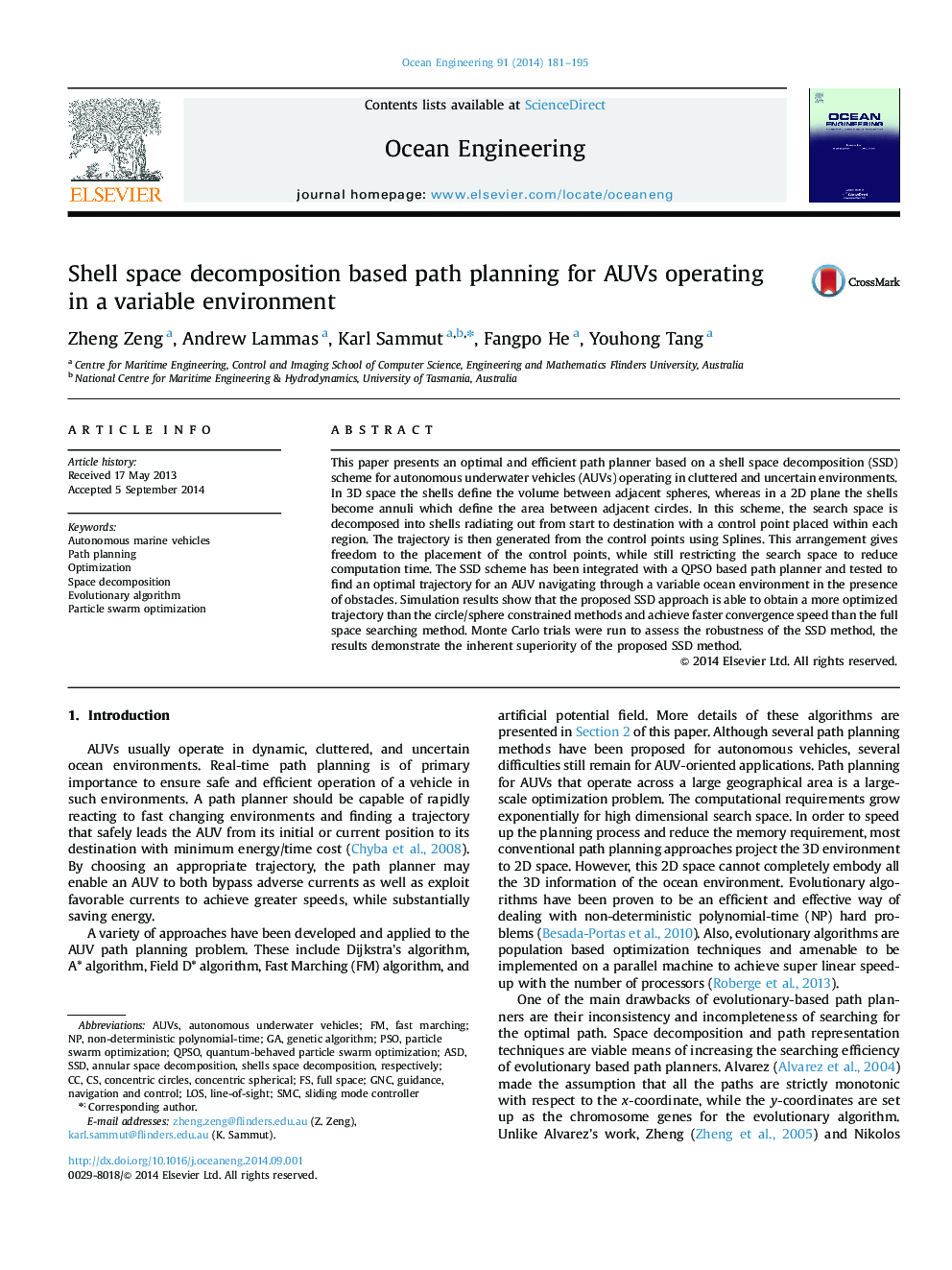| Article ID | Journal | Published Year | Pages | File Type |
|---|---|---|---|---|
| 8066110 | Ocean Engineering | 2014 | 15 Pages |
Abstract
This paper presents an optimal and efficient path planner based on a shell space decomposition (SSD) scheme for autonomous underwater vehicles (AUVs) operating in cluttered and uncertain environments. In 3D space the shells define the volume between adjacent spheres, whereas in a 2D plane the shells become annuli which define the area between adjacent circles. In this scheme, the search space is decomposed into shells radiating out from start to destination with a control point placed within each region. The trajectory is then generated from the control points using Splines. This arrangement gives freedom to the placement of the control points, while still restricting the search space to reduce computation time. The SSD scheme has been integrated with a QPSO based path planner and tested to find an optimal trajectory for an AUV navigating through a variable ocean environment in the presence of obstacles. Simulation results show that the proposed SSD approach is able to obtain a more optimized trajectory than the circle/sphere constrained methods and achieve faster convergence speed than the full space searching method. Monte Carlo trials were run to assess the robustness of the SSD method, the results demonstrate the inherent superiority of the proposed SSD method.
Keywords
Related Topics
Physical Sciences and Engineering
Engineering
Ocean Engineering
Authors
Zheng Zeng, Andrew Lammas, Karl Sammut, Fangpo He, Youhong Tang,
